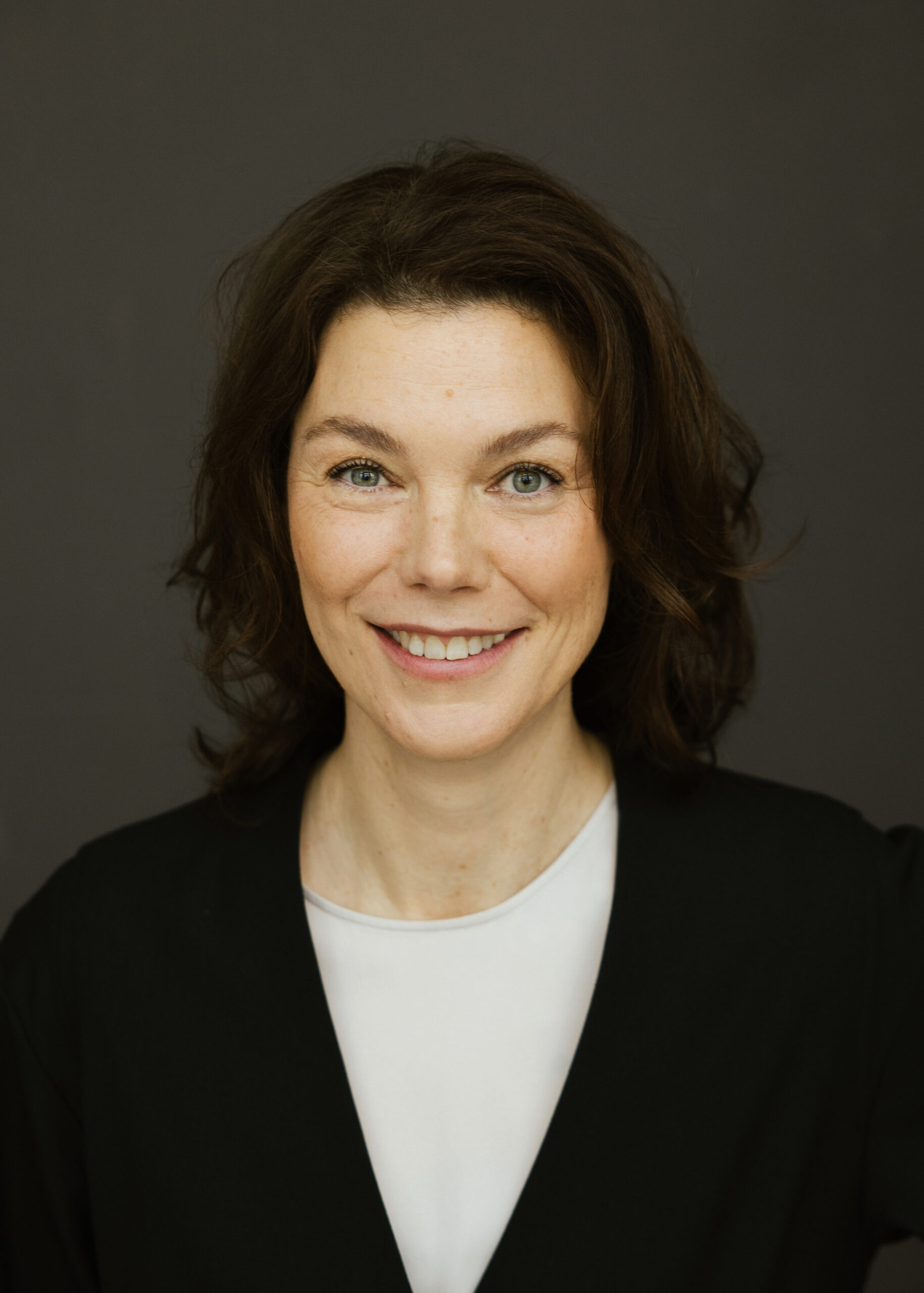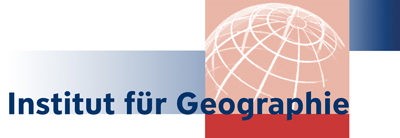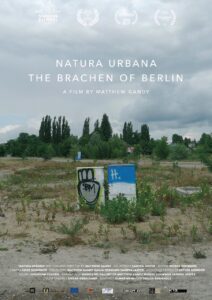
Prof. Dr. Sandra Jasper
Lehrstuhl für Geographie (Kulturgeographie und Gesellschafts-/Umweltforschung)
Leitung
Adresse
Zimmer: 03.179, Geschoss: 03
Kontakt
Team Profile: Society-Environment Research Group
Qualifications
2015
PhD in Geography, University College London, UK
2008
Magister in Geography and Gender Studies, Humboldt-Universität zu Berlin
Career
From January 2025
Chair in Cultural Geography and Society-Environment Research
Department of Geography, FAU Erlangen-Nürnberg.
2020-2024
Junior Professor for Geography of Gender in Human-Environment-Systems
Department of Geography, Humboldt-Universität zu Berlin.
2019-2020
Postdoctoral Research Fellow
Center for Metropolitan Studies, Technische Universität Berlin.
2015-2019
Postdoctoral Research Associate, ERC Advanced Grant Rethinking Urban Nature
Department of Geography, University of Cambridge.
2014-2015
Doctoral Research Associate, ERC Advanced Grant Rethinking Urban Nature
Department of Geography, University College London.
Leadership Roles
September 2023 – December 2024
Co-Speaker of the Center for Transdisciplinary Gender Studies (ZtG)
Humboldt-Universität zu Berlin.
April 2023 – December 2024
Co-Director of the Integrative Research Institute on Transformations of Human-Environment Systems (IRI THESys)
Humboldt-Universität zu Berlin.
November 2022 – December 2024
Council Member and Vice Executive Director of the Georg-Simmel-Center for Urban Studies (GSZ)
Humboldt-Universität zu Berlin.
Since 2021
Spokesperson of the Reseach Consortium
Re-Scaling Global Health. Human Health and Multispecies Cohabitation on an Urban Planet (ReHealth)
Berlin University Alliance, DFG Funding Line “Universities of Excellence”.
I) Urban political ecology
I am interested in exploring changing meanings of urban nature and biodiversity through interdisciplinary analysis. In my work, I have engaged the interface between the social-science, historical-materialist field of Urban Political Ecology (UPE) and the natural science of urban ecology. Both fields refer to a common object of knowledge, “urban nature”, but largely run parallel to each other. To date, there have only been few attempts to combine scientific insights from ecology with historical-materialist approaches to the production of urban space. My work has made several contributions to fill this gap. First, in my historically-oriented work on ecological thinking, I critically engage with the resurgence of organicist and vitalist thought in contemporary new materialist strands of social theory and geography by drawing on historiographies of nature and critiques within feminist epistemologies of science. Second, I examine the role cities play as laboratories for the study of environmental change. I am currently consolidating this work in my monograph Experimental Fields (Columbia UP) on the history of West Berlin’s wastelands. Third, I examine ideas around the malleability of urban nature through different ways in which nature is ‘put to work’ in efforts to restore riverfronts, adapt cities to climate change, for its metabolic capacities to clean up pollution, and as living sensor for environmental change. Hereby, I also draw on ecological insights to examine how urban nature is itself reconfigured by design interventions.
II) Sonic geographies
A second long-standing research area are sonic geographies. Research into the geographies of sound is part of a dynamic and interdisciplinary research landscape at the interface between sound studies, cultural geography, and the environmental humanities. I have advanced this field in two distinct ways. First, my work on urban soundscapes examines designerly practices modifying and technologically enhancing the sonic experience of cities. Cities are generally viewed as sites and sources of noise pollution, but urban sound is far more nuanced. The field of urban political ecology has paid little attention to the aesthetic manipulation of urban space through sound. In order to better understand how sound has different social and ecological effects, I expand the focus from phenomenological concerns with the experience of the individual subject to a urban political ecology of sound.
My second focus lies on wildlife sound recording. In the project ‘Listening to the archive: A cross-cultural analysis of European wildlife sound archives, 1950 to the present’, funded by the British Academy/Leverhulme Trust (2023-25), and its expansion ‘Networked through Sound: Listening to 20th Century Wildlife Sound Archives’, funded by the AHRC-DFG Funding Initiative in the Humanities (2025-28), I collaborate with the British geographer Dr Jonathan Prior (Cardiff University) to study the history of European wildlife sound recording through seven archives located in Europe and South Africa. We examine how this network of wildlife sound archives, and the recordings they contain, have been produced and consumed in a variety of social and cultural contexts, including their colonial and geopolitical roles and histories. We also consider the use of wildlife sound recordings in the contemporary world, ranging from attempts to evoke affective responses in public education on conservation issues, the enrolment of animal sound in economic development projects, and the development of automated pattern recognition systems in long-term conservation monitoring to respond to the challenges of climate change and biodiversity loss.
III) Geographies of global/planetary health
In my recent work, I have extended my interest in urban nature and environmental change by exploring how urban political ecology might be linked more systematically with fields such as epidemiology and toxicology. In my most recent project ‘Re-Scaling Global Health’ (2023-2026), I have brought together an interdisciplinary team of urban scholars from the social sciences, the humanities, urban design and planning fields with ecologists and virologists to work towards conceptualizing and empirically examining the complex relationship between human health and the urban environment. Conceptually, our aim is to advance a theory and practice of multispecies urbanism that understands the environment not as a passive backdrop but as an active agent co-producing urban space and affecting human health.
My own sub-project focuses on the pollution of urban water bodies. I explore how urban rivers and wetlands, as human habitat, and urban ecology, contain different types of pollution that affect human and ecosystem health, and the spatio-temporal scales of disaster and exposure deriving from it. Together with a team of postdoctoral researchers, we draw on insights from different cases across Europe, Latin America, and Indonesia. In Murcia, in the South of Spain, for example, areas in proximity to industrialised agriculture have become ‘hypertoxic’ affecting existing ecosystems and water resources over vast areas. Nitrogenous waste has caused the ecological collapse of the Mar Menor, a large saltwater lagoon, sparking intense political conflicts around the designation of the lagoon as the first water body in Europe with the Rights of Nature status. Empirically, the project examines how multiple pollutants are known, felt, and lived with by affected groups inhabiting degraded littoral zones; the different ways of evidencing pollution using existing environmental data, oral histories, sentinels, counter-mapping, Apps, DIY tools, and other forms of knowledge production; and the strategies of intervention used by citizens, planners, and governments. Conceptually, the project advances ideas of planetarity, health, and pollution through a range of lenses including metabolism, exposure and toxicity, and multispecies thinking. Furthermore, it aims to develop new engagements with the field of legal geography, for example on the personhood of rivers and on strategies of evidencing pollution and its contested effects on human health.
I am Co-author and executive producer of the documentary film Natura Urbana: The Brachen of Berlin dir. by Matthew Gandy (UK/Germany, 2017, 72 mins).
Natura Urbana tells the post-war history of Berlin through its plants. The film takes us from the Trümmerlandschaften and their unique ecologies to the abandoned roofs of the Friedrichshagen Waterworks on the edge of the city. We are encountering an extraordinary variety of spontaneous vegetation from all over the world that has sprouted along railway lines, street corners, and in the distinctive Brachen of Berlin.
In Natura Urbana the changing vegetation of Berlin serves as a parallel history to war-time destruction, geo-political division, and the newest phase of urban transformation. Natura Urbana takes us on a unique journey through Berlin ranging from the botanical microcosm of cracked paving stones to elaborate attempts to map the entire city in terms of its distinctive ecological zones.
You can find the trailer, upcoming screenings, and more information on the film’s website.
Books
- Sandra Jasper, Experimental Fields: A Cultural History of West Berlin (under contract with Columbia University Press).
- Valentin Domann, Sandra Jasper and Lucas Pohl (eds.) Politicizing Space: A Reader on Erik Swyngedouw (under contract with Manchester University Press)
- Matthew Gandy and Sandra Jasper (eds.) The Botanical City (Berlin: jovis, 2020).
- Sandra Jasper, Cyborg Imaginations: Nature, Technology and Urban Space in West Berlin (PhD monograph dissertation, University College London Repositorium, 2015).
Journal articles (peer-reviewed)
- Jasper, S. and Prior, J., 2025 „Animal voices on file: Postwar sonic modernism at the Animal Sound Archive, Natural History Museum, Berlin“, Sound Studies (under review)
- Toland, A., Ektander, C., & Jasper, S. (2025). Mediating ‘alterlife’: Artistic research on plant labour at a contaminated site in Bitterfeld-Wolfen. Urban Studies, 0(0). https://doi.org/10.1177/00420980251383781
- Schwartzman, G., Braun, B., Jasper, S., McCarthy, J., Fabris, M., & Ritts, M. (2025). A Resonant Ecology.The AAG Review of Books, 13(4), 46–57. doi.org/10.1080/2325548X.2025.2538882
- van Duppen, J., Aneas, A., Harvey, A., Jasper, S., Kemmer, L. and Andreoli Muniz, C., 2023 „Leaks and Rumblings: An Experimental Confluence of (In)Visible Rivers in São Paulo and London“, Mediapolis: A Journal of Cities and Culture 8(4)
- Kemmer, L. and Jasper, S., 2023 „Urbanizing Soil: Berlin Teufelsberg as leaky archive“, Berliner Blätter 87: 95–104. doi.org/10.18452/28588
- Jasper, S., 2022 „Spekulative Ökologien: Die Finanzialisierung der Stadtnatur“, ARCH+ Zeitschrift für Architektur und Urbanismus 247: 108–113
- El-Husseiny, M., Simone, A., Guiu Searle, L., Ghertner, A. and Jasper, S., 2021 “Not Just Roads” The AAG Review of Books 9(4): 39-52. doi.org/10.1080/2325548X.2021.1960094
- Jasper, S., 2020 “Acoustic Ecologies: Architecture, Nature, and Modernist Experimentation in West Berlin,” Annals of the American Association of Geographers 110(4): 1114–1133. doi.org/10.1080/24694452.2019.1673143
- Jasper, S., 2020 “Abandoned Infrastructures and Nonhuman Life,” in Society & Space forum.
- Jasper, S., 2019 “Capturing Brachen: A Geographical Journey into Filmmaking,” The AAG Review of Books 7(3): 215–217. doi.org/10.1080/2325548X.2019.1615328
- Jasper, S., 2019 “Patina: A Profane Archaeology: Commentary by Sandra Jasper, Department of Geography, University of Cambridge, Cambridge, UK,” The AAG Review of Books 7(2): 118–120. doi.org/10.1080/2325548X.2019.1579579
- Jasper, S., 2018 “Sonic Refugia: Nature, Noise-Abatement, and Landscape Design in West Berlin,” The Journal of Architecture 23 (6): 936–960. doi.org/10.1080/13602365.2018.1505773
- Gandy, M. and Jasper, S., 2017 ‘Geography, Materialism, and the Neo-Vitalist Turn,’ Dialogues in Human Geography 7 (2): 140–144. doi.org/10.1177/2043820617717848
- Jasper, S. and Merrill, S., 2014 „What is so Berlin? A critical review of current lines and questions of urban research in the German capital“, sub/urban Zeitschrift für kritische Stadtforschung 2:2: 5–14. doi.org/10.36900/suburban.v2i2.145
Chapters in edited volumes
- Tomás J. Usón and Sandra Jasper, Ice as trace: Correspondences and conflicts around earthly archives in the Cordillera Blanca, Peru, in Unearthing Collections: Archives, Time, and Ethics. Edited by Magdalena Buchczyk, Martin Fonck, Tomás J. Usón, Tina Palaić (London: UCL Press, 2025). https://doi.org/10.14324/111.9781800089501
- Hannah Hunter, Sandra Jasper, and Jonathan Prior, Digital sonic ecologies: Encountering the non-human through digital sound recordings, in Digital Ecologies: Mediating More-than-human Worlds. Edited by Henry Anderson-Elliott, Eva Giraud, Adam Searle and Jonathon Turnbull (Manchester University Press, 2024), pp. 50-69. https://doi.org/10.7765/9781526170354.00010
- Sandra Jasper, Botanizing the Red Soil, in Red Luxembourg. Edited by Peter Swinnen and Nathan Heindrichs (Walther König: Cologne/New York, 2022), pp. 93–107.
- Sandra Jasper, Berlin, a Ruderal Urbanism, in Natur Park Schöneberger Südgelände and Berlin’s Urban Nature. Edited by Patrizia Boschiero, Thilo Folkerts, and Luigi Latini (Fondazione Benetton, Studi Ricerche, with Antiga, 2022), pp. 153–160.
- Sandra Jasper, Traversing Wastelands: Reflections on an Abandoned Railway Yard, in The New Urban Ruins. Edited by Cian O’Callaghan and Cesare Di Feliciantonio (Bristol: Policy Press, 2021), pp. 53–72. doi.org/10.56687/9781447356899-007
- Sandra Jasper, Acoustic Botany: Listening to Nature in a Former Airfield, in The Botanical City. Edited by Matthew Gandy & Sandra Jasper (Berlin: jovis, 2020), pp. 221–228.
- Matthew Gandy and Sandra Jasper, The City as a Botanical Field, in The Botanical City. Edited by Matthew Gandy and Sandra Jasper (Berlin: jovis, 2020), pp. 6–14.
- Sandra Jasper, Acoustic Ecology: Hans Scharoun and Modernist Experimentation in West Berlin, in The Acoustic City. Edited by Matthew Gandy and BJ Nilsen (Berlin: jovis, 2014), pp. 145–155.
- Sandra Jasper, Architecture for Expanded Listening: Hans Scharoun’s Philharmonie in Berlin, in What Matters Now? (What Can’t You Hear?). Edited by Daniela Cascella and Paolo Inverni (Noch Publishing [ebook, 2013]).
- Sandra Jasper, Phantom Limbs: Encountering the Hidden Spaces of West Berlin, in Urban Constellations. Edited by Matthew Gandy (Berlin: jovis, 2011), pp. 153–157.
Podcasts and other publications
- Urban Political Podcast, GSZ, HU Berlin: Film-Making as Urban Research
- KOSMOS On Air, HU Berlin: Klimakrise und Geschlechtergerechtigkeit, mit Prof. Dr. Sybille Bauriedl

